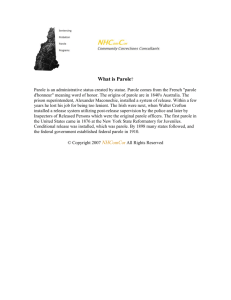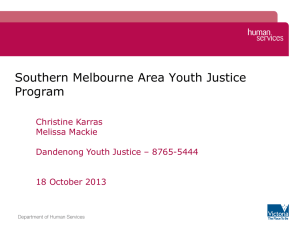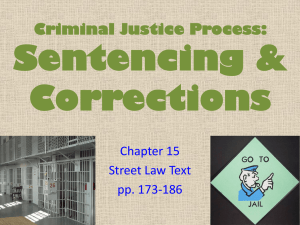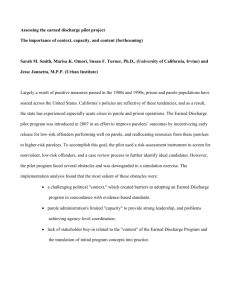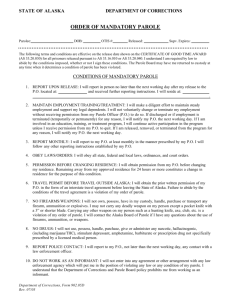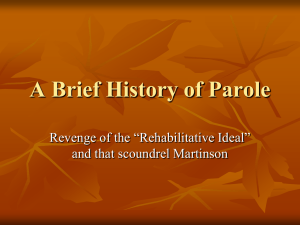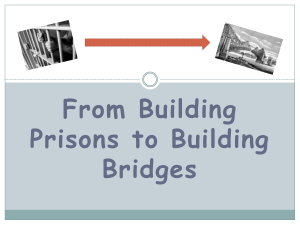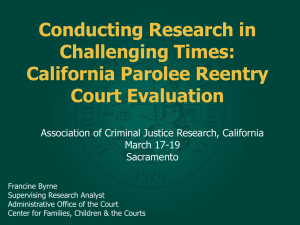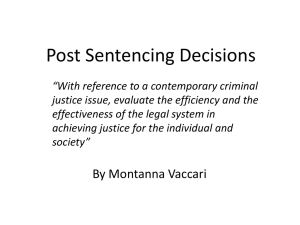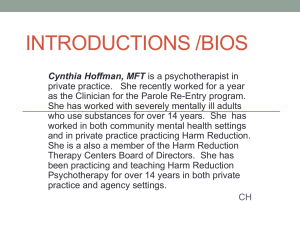Parole in New York State: the Public Calls for Major
advertisement
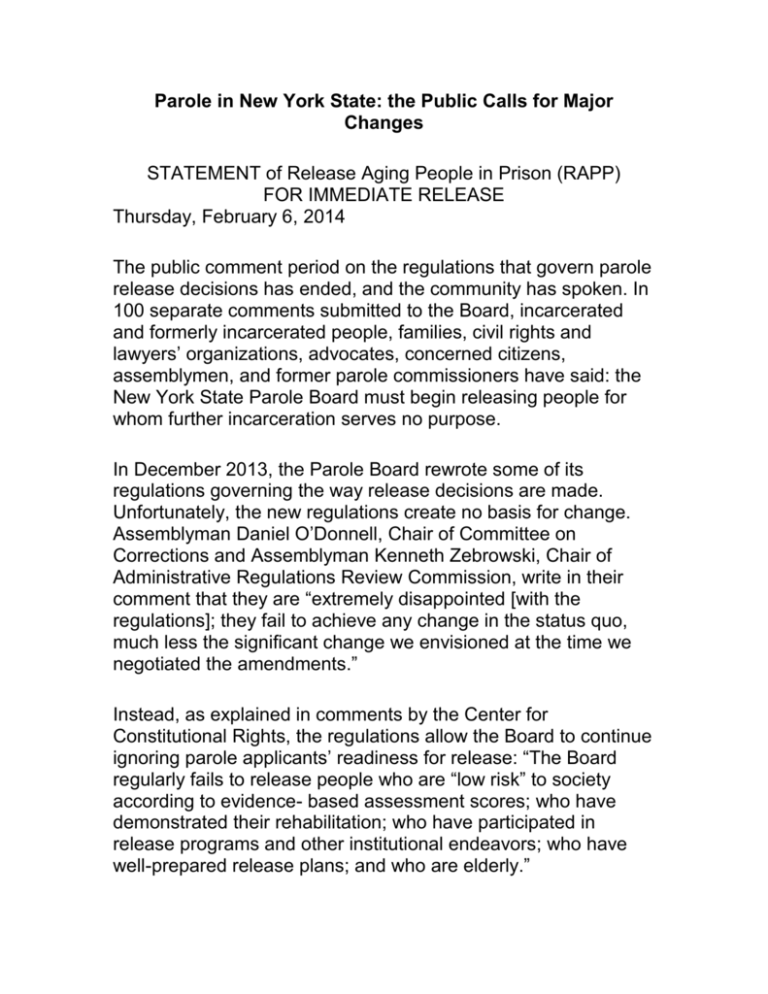
Parole in New York State: the Public Calls for Major Changes STATEMENT of Release Aging People in Prison (RAPP) FOR IMMEDIATE RELEASE Thursday, February 6, 2014 The public comment period on the regulations that govern parole release decisions has ended, and the community has spoken. In 100 separate comments submitted to the Board, incarcerated and formerly incarcerated people, families, civil rights and lawyers’ organizations, advocates, concerned citizens, assemblymen, and former parole commissioners have said: the New York State Parole Board must begin releasing people for whom further incarceration serves no purpose. In December 2013, the Parole Board rewrote some of its regulations governing the way release decisions are made. Unfortunately, the new regulations create no basis for change. Assemblyman Daniel O’Donnell, Chair of Committee on Corrections and Assemblyman Kenneth Zebrowski, Chair of Administrative Regulations Review Commission, write in their comment that they are “extremely disappointed [with the regulations]; they fail to achieve any change in the status quo, much less the significant change we envisioned at the time we negotiated the amendments.” Instead, as explained in comments by the Center for Constitutional Rights, the regulations allow the Board to continue ignoring parole applicants’ readiness for release: “The Board regularly fails to release people who are “low risk” to society according to evidence- based assessment scores; who have demonstrated their rehabilitation; who have participated in release programs and other institutional endeavors; who have well-prepared release plans; and who are elderly.” Or, as the New York City Bar Association comments, by focusing on static factors the trial judge has already considered, the Board “is upsetting the separation of powers within the state criminal justice system and is effectively acting as another sentencing court.” It is unfair to deny people parole based on something they can never hope to change: the nature of their offense. As George Hill, an incarcerated man who has twice been denied parole, comments, “all the things showing my change of attitude, thinking and living was somehow not enough to be given a second chance after twenty-two years of incarceration. It conveys that the parole board is all about politics, retribution and punishment.” Rev. Ron Lemmert, who has served as chaplain at both Sing Sing and Bedford Hills Correctional Facilities, condemns this cycle of endless retribution and insists, “instead of focusing on the pain, which never goes away until the person is ready to let go of it, the Parole Board should be looking for signs of transformation in the person who committed the crime.” Moreover, these regulations “do not enhance community safety,” comments former New York State Parole Board member Thomas Grant. People over 50 who have served long sentences are currently the most affected by arbitrary parole practices. “These elders do not need to be incarcerated,” says Mujahid Farid, lead organizer for Release Aging People in Prison (RAPP). “The risk of committing a new crime is about 5% for older people, compared with an overall recidivism risk of nearly 40%,” he said. The NYS Catholic Conference Criminal Justice Committee sums up the community view of how the Board should proceed: “Protection of society and advancing respect for the law are roles of the Parole Board that can be best achieved by following clear and predictable guidelines.” The public is watching closely to see how the Board will respond. Rather than relying on a culture of permanent revenge and punishment, communities are eager to take back control and focus on public safety. We look forward to a time when the communities of New York State can take responsibility for healing the damage caused not just by violence and crime, but also by the prison system itself. It is long past time for the parole system to truly reflect the concept of honor from which its name is derived--a concept of honor that includes forgiveness, human dignity, and the rejection of perpetual punishment. Read all the comments at http://www.correctionalassociation.org/resource/public-comments-insupport-of-parole-reform Keep Up the Pressure on the Parole Board: Come to Albany on February 15th for a panel on parole reform at the Black and Puerto Rican Legislative weekend. For more information: https://www.facebook.com/RAPPCampaign Free bus reservations: Mujahid Farid, mfarid@correctionalassociation.org, 212-254-5700 ext. 317

